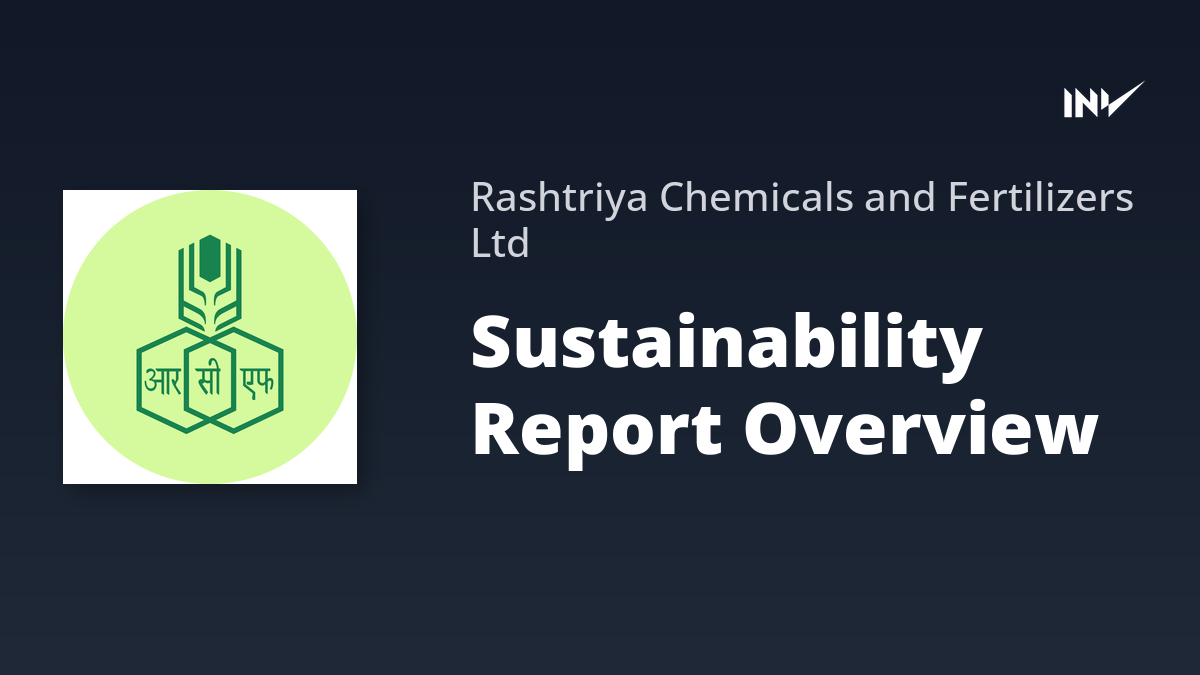Rashtriya Chemicals and Fertilizers Limited (RCF) has released its Business Responsibility and Sustainability Report, detailing its ESG initiatives. The report highlights RCF’s commitment to ethical governance, environmental protection, and social responsibility. 99.03% of the company’s turnover is attributed to the manufacturing and marketing of fertilizers and chemicals. RCF emphasizes employee well-being and community engagement through various programs, aiming for sustainable and inclusive growth. Key performance indicators and future targets are also outlined.
General Disclosures and Key Activities
Rashtriya Chemicals and Fertilizers Limited (RCF) released its Business Responsibility and Sustainability Report, highlighting key operational details. As of 2024-25, the company’s main business activity, the manufacturing and marketing of fertilizers and chemicals, accounts for 99.03% of its turnover. The report emphasizes key products including Urea (46.52% turnover contribution), Complex Fertilizers (15.01%), and Traded Fertilizers (26.68%).
Operational Footprint
RCF operates with 2 plants and 51 offices across India. Exports contribute to 0.93% of the total turnover. The company primarily serves farmers through wholesale and retail dealers, and sells industrial chemicals for industrial use.
Employee Well-being and Social Initiatives
The company’s report underscores its commitment to employee well-being. As of the end of the financial year, RCF had 1285 employees and 4005 workers. Health and safety measures are a priority, with regular inspections and a dedicated in-house primary health center. The company focuses on providing a safe and healthy work environment to prevent workplace accidents.
Environmental Stewardship
RCF is focused on reducing its environmental impact through various initiatives. These include focusing on renewable energy sources, adopting energy-efficient equipment, and implementing carbon capture strategies. The company has also set up sewage treatment plants (STPs) to treat waste sewage and convert it into treated water for use in its plants as process water.
Ethical Governance and Compliance
RCF is committed to ethical conduct and regulatory compliance. The company’s Code of Conduct and Monitoring Mechanism help ensure ethical behavior across all operations. Periodic reviews of regulatory changes and requirements are conducted to proactively address compliance issues. During the year, the company faced fines related to non-compliance with regulations pertaining to the appointment of independent directors. An appeal has been preferred against the same.
Commitment to Sustainability
RCF has adopted an ESG framework consistent with the company’s vision and corporate principles, prioritizing sustainability. This framework is built on three pillars: Protective Environment, Minimizing Resource Use, and Inclusive Growth.
Energy Efficiency and Waste Management
RCF is focused on optimizing energy consumption and waste management. This includes setting up a briquette-fired boiler at the Thal unit and using briquettes (biomass) to replace fossil fuels. The company also utilizes treated sewage water to reduce reliance on freshwater resources. They also recycled approximately 46390.50 metric tonnes of waste.
Product Stewardship
RCF adheres to product stewardship principles, enhancing health, safety, and environmental impacts across product lifecycles. The organization aims to continuously improve its offerings based on customer feedback and environmental considerations.
Source: BSE





